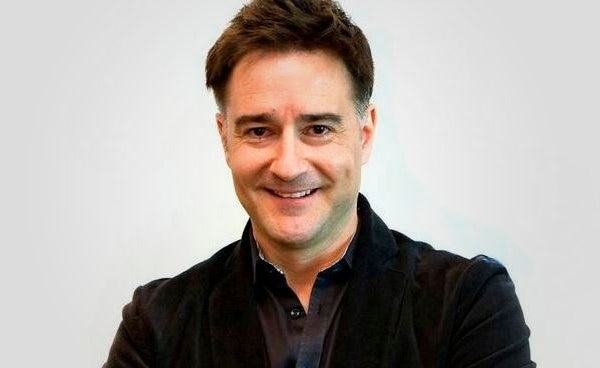Productivity tips come in all shapes and sizes.
Just look at Warren Buffett, a man considered one of the best investors in the history of human civilization. But what might be more impressive than his track record is his schedule. It is the exact opposite of what you’d expect out of the CEO of a $350 billion company. It has been reported that he generally reads for 80 percent of his day and spends the rest having one-on-one conversations with long-time friends who happen to be CEOs of the companies that Berkshire owns, according to the book The Outsiders. This has been his schedule for decades.
Warren avoids investor events, industry conferences and other activities that take up the time of most CEOs, according to the book. Instead he’s created a lifestyle where he can focus on what he does best and loves to do, control his schedule and work with people he respects and admires.
But this regimen doesn’t work for everyone. So I interviewed 10 leaders and asked them how they stay productive.
1. Create a checklist for decision-making matters

Cameron Herold, author of Double Double, CEO coach and renowned speaker.
Image credit:
Nate Pesce
It’s very easy to accidentally overcommit. Our brain wiring causes us to have trouble remembering all of our commitments or perceiving how long tasks take. To overcome this, I set up strict checklists for taking on any new projects:
- Do I have the time, money and resources to get it to completion?
- Is there an easier or faster way to make it happen?
- Will it delay anything I’ve currently green lighted?
- Does it lead to my Vivid Vision? A vivid vision is a strategic, detailed picture of the company in the future.
If all the answers check out, then I go forward. Simple checklists are a proven tool for consistently applying what we already know
— Cameron Herold, author of Double Double, CEO coach and renowned speaker
2. Only have one priority

Ryan Simonetti, co-founder of Convene.
Image credit:
Bobby Friedel
First thing every morning, I ask myself, ‘What is the one thing I need to do today to help my company’s vision that would make everything else easier or unnecessary?’
When you compound this process over days, months and years, the impact is truly astounding. It is the 80/20 rule on steroids.
Simplifying many priorities to one priority gives you a deeper understanding of what’s really important and increases the odds of completing that one thing. Studies have shown that focus on a singular vision is one of the key themes of successful companies.
— Ryan Simonetti, co-founder of Convene
3. Time block your entire day

Sevetri Wilson, CEO of Solid Ground Innovations.
Image credit:
Cody Judson
Similar to Bill Gates, I focus more on my calendar for managing my priorities than my to-do list.
I time block my entire day hour by-hour on my calendar. Most people make the mistake of only time blocking their meetings and phone calls. I also time block my planning, time off, key daily priorities, emails that need longer replies and social media (so it doesn’t creep in other times).
Time blocking works best if you don’t allow the constant barrage of daily interruptions to ruin it. Studies show that the drop in one’s productivity is especially drastic if you’re doing complex tasks. So I let my team members know not to interrupt me by closing my office door, and I have my assistant answer unscheduled phone calls.
— Sevetri Wilson, CEO of Solid Ground Innovations
Related: 10 Things Exceptionally Productive Entrepreneurs Do Every Day
4. Constantly reevaluate what your focus is

Rohit Anabheri, founder of Circa Ventures.
Image credit:
Ranganath Photography
I’ve developed a unique approach, one that was inspired by researcher A.J. Burton’s Reflection Model, to constantly staying aware of what’s most important, prioritizing it and saying no to everything else.
Every day when I’m presented with new opportunities or challenging situations that require critical thinking and could have a big impact on how I spend my time and money, I ask myself the following questions:
- What? What exactly is the opportunity or challenge?
- So What? What is its potential impact (positive and negative)?
- Now What? What should I do about it now?
This approach is powerful, because it keeps me focused on what I should do now and helps me plan for the future. Research shows that better, more holistic decisions are made by systematically evaluating the situation one aspect at a time. Also, by having a simple three-step decision-making framework that allows me to immediately simplify my thought process on the spot, I avoid decision fatigue. I make a decision once and then I’m done with it.
— Rohit Anabheri, founder of Circa Ventures
5. Say no by default

Benji Rabhan, founder of AppointmentCore.
Image credit:
Benji Rabhan
In 2013, I wrote two bestselling books, made the Inc. 500 list and sold one of my companies for seven figures, all within a 40-hour work week. These were my only big goals, and I blocked out most of my time everyday to make sure I moved toward them.
A key to my approach is being good at saying no to tasks unrelated to my goals, even when they are extremely tempting or easy to do. This took me years of practice. The fastest way to get good at saying no when being pressured to commit is to say something like, ‘If you need an answer from me right now, I’m sorry, but I would have to say no. If you can wait until I have my goal setting time later this week, I may be able to say yes but no promises.’
I then review these decisions bi-weekly in the context of my existing goals and commitments.
— Benji Rabhan, founder of AppointmentCore
6. Focus on the clouds and dirt

Aaron Steed, CEO of Meathead Movers.
Image credit:
Meathead Movers
My company now has more than 350 employees. One of the reasons we’ve grown so large is that I work on the business rather than in it.
Just as Gary Vaynerchuk recommends, I spend as much time as I can in the ‘clouds and dirt’:
Set a clear vision and goals (the clouds). I focus on creating clear, measurable and inspiring goals, so my team is empowered to create their own processes and systems — and I can hold them accountable.
Experience the result for yourself (the dirt). As a business owner, my focus is the result, so I make sure to experience the result first-hand, where it touches customers and employees. For example, once a month, I go on a moving job with the staff and then give feedback to our managers on how to improve the system overall.
— Aaron Steed, CEO of Meathead Movers
Related: 18 Unusual Habits That Boost Your Energy More Than Coffee
7. Get in touch with nature

Kay Koplovitz, founder of USA Network and Syfy.
I start just about every day with a 15-minute walk through Central Park in New York City. It is peaceful, beautiful in all seasons and helps to bring focus to the day. My intention on the walks is simply to enjoy nature. I call these walks my ‘pocket vacations.’
In a fascinating study performed in Scotland, researchers read the brainwaves of subjects as they walked through different environments such as busy urban streets or parks. In the urban environment, the subjects were more alert and frustrated. In the parklands, their brainwave readings became more meditative. Nature engages and relaxes the brain, which makes it a great environment for reflection, and it makes it easier to concentrate later in the day.
— Kay Koplovitz, founder of USA Network and Syfy
8. Establish a minimum hurdle rate

Jason Duff, founder and CEO of COMSTOR Outdoor.
Image credit:
Jason Duff
In a study of the most successful CEOs of the last 50 years, each CEO (including Warren Buffett) knew the minimum return on investment, or hurdle rate, they were willing to accept and never accepted any opportunity that they predicted would not hit their minimum.
When I acquire an asset with my business, I do the same thing. I look for something that I can invest in once and then have it create value perpetually. It’s been an incredible wealth-building strategy, and I think it applies to my time as well.
I recently noticed that my personal life was suffering because I was chasing too many business opportunities, so I increased my hurdle rate in the business, so I’d have more time in my personal life.
— Jason Duff, founder and CEO of COMSTOR Outdoor
9. Start your day over

Brian Scudamore, founder and CEO of 1-800-GOT-JUNK?, You Move Me, and Wow 1 Day Painting.
Image credit:
Raymond Chou Photography
When I struggle with focus in the middle of the day, it’s usually because I’m feeling overwhelmed. To counter this feeling, I mentally start the day over again.
I get out a blank piece of paper, make a list of my commitments and circle the three things that have the biggest impact on driving the business forward. I leave the rest behind, so I don’t feel guilty about not getting stuff done. A psychology study shows that we improve our work performance when we write down tasks, because it frees us from being mentally preoccupied.
Before I jump in, I remove any distractions, especially my number-one distraction: email.
— Brian Scudamore, founder and CEO of 1-800-GOT-JUNK?, You Move Me and Wow 1 Day Painting
10. No more yes: It’s either ‘Hell yeah!’ or no

Derek Sivers, founder and former president of CD Baby.
Image credit:
Pat Shepherd
When deciding whether I should commit to anything, I use my philosophy of ‘HELL YEAH! Or no.’. Facing any potential commitment, if I feel anything less than, ‘Wow, that would be amazing! Absolutely! Hell yeah!’ then my answer is no.
For example, when hiring people, I had a lot of candidates for a long-term project but none blew me away. So I rejected everyone, started a new search and then I came across the ideal candidate. For conferences, instead of obligatorily going to three music conferences that I had said yes to, I realized that I didn’t feel ‘HELL YEAH!’ so ended up with 12 free days on my calendar, which I used to get a new business launched.
I recommend Steve Pavlina’s approach of rating your satisfaction in each area of your life from 1 to 10 and then replacing any areas below 9 with 1s.
— Derek Sivers, founder and former president of CD Baby and author of Anything You Want.
Special thanks to Ian Chew, Luke Murray, Sheena Lindahl, and Marc Busko who volunteered their time to edit this article and do research.
Related: 7 Insanely Productive Habits of Successful Young Entrepreneurs
Source link
 DRIVE STARTUPS We Present Latest Startup News, Tips & Inspiration
DRIVE STARTUPS We Present Latest Startup News, Tips & Inspiration

